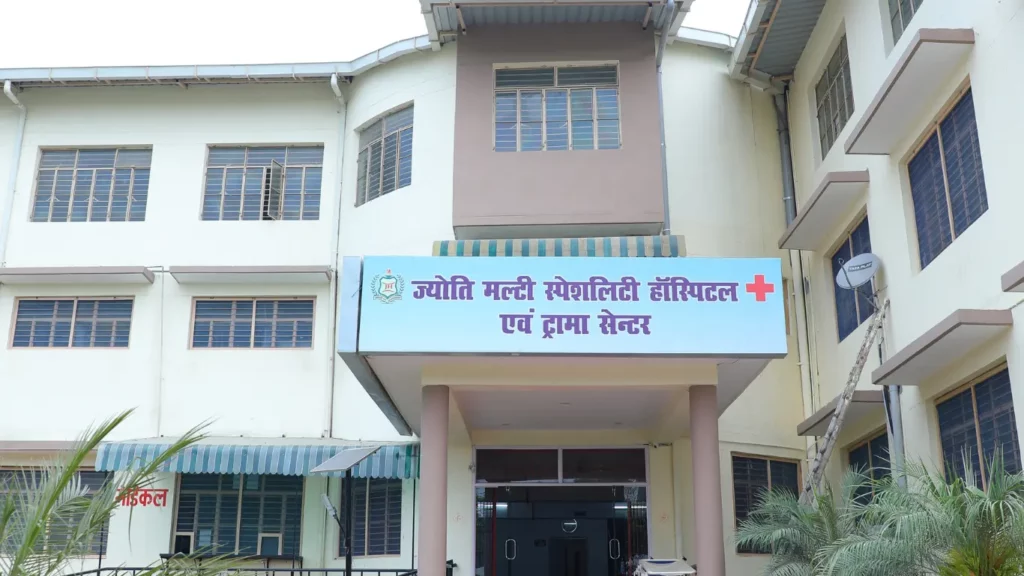Trauma Centre: Providing Specialized Care for Critical Injuries
Table of Contents
Trauma Centre: Providing Specialized Care for Critical Injuries
In the realm of healthcare, trauma centres play a crucial role in saving lives and providing specialized care for individuals with critical injuries. These specialized medical facilities are designed to handle emergencies, particularly those involving severe trauma. In this article, we will explore what trauma centres are, their importance, the different levels of trauma centres, core components, the process they follow, challenges they face, and their significance in modern healthcare.

What is a Trauma Centre?
Definition and Purpose
A trauma centre is a medical facility that is equipped and staffed to provide comprehensive care for patients suffering from traumatic injuries. These injuries typically result from accidents, violence, falls, or natural disasters. Trauma centres are specifically designed to handle critical cases, ensuring prompt and appropriate treatment for patients in critical condition.
Specialized Care
One of the primary objectives of trauma centres is to provide specialized care to patients with life-threatening injuries. These centres have a dedicated team of healthcare professionals who are trained to respond quickly and efficiently to critical situations. They employ advanced techniques and employ state-of-the-art equipment to manage emergencies and stabilize patients.
Importance of Trauma Centres
Timely and Specialized Treatment
The importance of trauma centres cannot be overstated. Time is of the essence in critical situations, and trauma centres are strategically located to minimize the time it takes for patients to receive essential care. By having trauma centres in close proximity to areas with high accident rates or population density, emergency medical services can swiftly transport patients to these facilities, ensuring timely treatment and increasing the chances of survival.
Multidisciplinary Approach
Trauma centres follow a multidisciplinary approach to provide comprehensive care. A team of experts from various medical specialties, including trauma surgeons, emergency medicine physicians, anesthesiologists, radiologists, and nurses, collaborate to evaluate and treat patients. This integrated approach ensures that all aspects of a patient’s condition are addressed, leading to improved outcomes.
Trauma Centre Levels
Level I Trauma Centres
Level I trauma centres are typically large, tertiary care facilities that provide the highest level of trauma care. These centres have 24/7 availability of medical specialists, advanced diagnostic and surgical capabilities, and research and education programs. Level I trauma centres often serve as referral centres for complex cases and provide leadership in trauma research and system development.
Level II Trauma Centres
Level II trauma centres are also comprehensive facilities that offer specialized trauma care. While they may not have the same level of research and educational programs as Level I centres, they have the expertise and resources to provide optimal care for trauma patients. Level II trauma centres collaborate with Level I centres for the transfer of patients requiring more advanced care.
Level III Trauma Centres
Level III trauma centres are typically community hospitals that provide initial stabilization and care for trauma patients. They have the necessary resources to evaluate and stabilize patients before transferring them to higher-level trauma centres if needed. These centres play a crucial role in ensuring that patients in remote or rural areas receive timely initial care before being transferred to more specialized facilities.
Core Components of a Trauma Centre
Highly Skilled Staff
A trauma centre’s success relies on the expertise and skills of its medical staff. From trauma surgeons and emergency medicine physicians to nurses and technicians, every member plays a vital role in providing quality care. These professionals undergo specialized training to handle critical injuries, ensuring that patients receive the best possible treatment.
Advanced Facilities and Equipment
Trauma centres are equipped with state-of-the-art facilities and cutting-edge equipment to manage critical injuries. Advanced imaging systems, operating rooms, intensive care units, and blood banks are some of the essential resources available. Having these resources readily available within the trauma centre helps in providing rapid and accurate diagnostics, surgical interventions, and critical care support.
Protocols and Guidelines
Trauma centres follow standardized protocols and guidelines to ensure consistent and evidence-based care. These protocols cover every aspect of trauma management, from initial assessment and resuscitation to surgical interventions and rehabilitation. By adhering to these guidelines, trauma centres maintain a high standard of care and optimize patient outcomes.
Trauma Centre Process
Triage and Initial Assessment
When trauma patient arrives at a trauma centre, they undergo a process called triage, where the severity of their injuries is evaluated. The medical team quickly assesses the patient’s condition, identifies life-threatening injuries, and prioritizes treatment accordingly. This initial assessment plays a crucial role in determining the course of action and interventions required.
Stabilization and Treatment
Once the initial assessment is complete, trauma centres focus on stabilizing the patient’s condition. This may involve various interventions, such as controlling bleeding, providing respiratory support, immobilizing fractures, or administering medications. The aim is to stabilize the patient and prevent further deterioration before proceeding with definitive treatment.
Rehabilitation and Follow-up Care
After the acute phase of treatment, trauma centres emphasize rehabilitation and follow-up care. Physical therapy, occupational therapy, and psychological support are provided to aid the patient’s recovery. Trauma centres also collaborate with rehabilitation centres and outpatient clinics to ensure a smooth transition and continuity of care.
Trauma Centre Challenges
High Cost of Operations
Operating a trauma centre involves significant financial investments due to the advanced facilities, equipment, and highly skilled staff required. Additionally, trauma centres often face challenges in securing adequate funding, which can impact their ability to provide optimal care. Funding and resource allocation remain critical concerns for trauma centres worldwide.
Limited Accessibility
While trauma centres are essential for providing specialized care, their accessibility can be a challenge in certain regions. Rural areas, remote locations, or regions with inadequate transportation infrastructure may struggle to establish and maintain trauma centres. This limitation can lead to delayed access to critical care for individuals residing in these areas.
Emotional Impact on Staff
Working in a trauma centre can be emotionally demanding for healthcare professionals. The high-stress environment, frequent exposure to critical injuries, and the emotional toll of dealing with traumatic situations can impact the mental well-being of the staff. Trauma centres must prioritize the mental health support and well-being of their employees to ensure their long-term effectiveness.
Why Choose Jyoti Multispecialty Hospital & Trauma Centre: Best Trauma Care in Bareilly
When it comes to trauma care, selecting the right hospital is of utmost importance. Jyoti Multispecialty Hospital & Trauma Centre in Bareilly stands out as an exceptional choice for trauma care due to several key factors that ensure optimal patient outcomes and comprehensive support. Here are the reasons why you should choose Jyoti Multispecialty Hospital for trauma care:
Expertise in Trauma Care: Jyoti Multispecialty Hospital boasts a team of highly skilled and experienced healthcare professionals who specialize in trauma care. The hospital has a dedicated trauma team comprising trauma surgeons, emergency medicine physicians, anesthesiologists, and critical care specialists. Their expertise and knowledge enable them to deliver prompt and effective treatment to trauma patients.
State-of-the-Art Facilities: Jyoti Multispecialty Hospital is equipped with state-of-the-art facilities and advanced medical technology to handle even the most complex trauma cases. The hospital has advanced imaging systems, modern operating theatres, and well-equipped intensive care units to provide comprehensive care throughout the patient’s journey.
24/7 Availability: Traumatic injuries can occur at any time, and immediate medical attention is critical. Jyoti Multispecialty Hospital ensures round-the-clock availability of trauma care services. The hospital’s emergency department is staffed by a skilled team of healthcare professionals who are ready to respond to emergencies promptly and provide immediate care.
Collaborative Approach: Jyoti Multispecialty Hospital follows a multidisciplinary approach to trauma care. The trauma team collaborates closely with other specialities, such as neurosurgery, orthopaedics counseling, and rehabilitation, to provide holistic care. This collaborative approach ensures that all aspects of the patient’s condition are addressed, leading to better outcomes.
Rehabilitation Support: Recovery from a traumatic injury often requires rehabilitation to regain functionality and independence. Jyoti Multispecialty Hospital offers comprehensive rehabilitation support, including physical therapy, occupational therapy, and psychological counseling. The hospital’s dedicated rehabilitation team works closely with patients to optimize their recovery and facilitate a smooth transition back to daily life.
Compassionate Care: Jyoti Multispecialty Hospital places a strong emphasis on providing compassionate care to trauma patients and their families. The hospital’s staff understands the emotional and psychological impact of traumatic injuries and strives to provide a supportive environment. They ensure that patients and their families receive clear communication, empathy, and guidance throughout the treatment process.
Community Outreach and Education: Jyoti Multispecialty Hospital is actively involved in community outreach and education programs related to trauma prevention and awareness. The hospital conducts workshops, seminars, and campaigns to educate the public about safety measures and the importance of timely medical intervention in case of trauma.
Conclusion
Trauma centres play a vital role in providing specialized care for individuals with critical injuries. These facilities, equipped with highly skilled staff, advanced facilities, and standardized protocols, offer timely and specialized treatment to maximize patient outcomes. While they face challenges in terms of funding and accessibility, the significance of trauma centres in modern healthcare cannot be understated. Their presence ensures that individuals facing life-threatening injuries have the best chance at survival and recovery.
Jyoti Multispecialty Hospital & Trauma Centre is a top choice for trauma care due to its expertise, state-of-the-art facilities, round-the-clock availability, collaborative approach, rehabilitation support, compassionate care, and community engagement. By choosing Jyoti Multispecialty Hospital, you can be assured of receiving exceptional trauma care and support during your journey to recovery.
FAQs
Trauma centres are equipped to handle a wide range of injuries, including severe head trauma, spinal cord injuries, multiple fractures, gunshot wounds, and severe burns.
Trauma centres are specialized facilities that provide focused care for individuals with critical injuries. They have dedicated teams and resources specifically designed to handle trauma cases, ensuring optimal treatment and outcomes.
While trauma centres are more commonly found in urban areas, efforts are being made to establish trauma centres in rural regions. However, limited resources and accessibility remain challenges in providing trauma care to remote areas.
Trauma centres are equipped to handle emergencies, and anyone with a critical injury should seek immediate medical attention at the nearest trauma centre. Emergency medical services can transport patients to trauma centres for specialized care.
Trauma centres improve patient outcomes through their specialized approach, timely treatment, multidisciplinary collaboration, and adherence to standardized protocols. Their focus on specialized trauma care significantly enhances the chances of survival and recovery.

